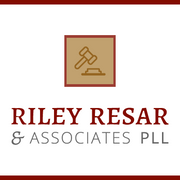
Bankruptcy is the federal legal process of repaying creditors and eliminating debt. Understanding the advantages and disadvantages of this process is key for determining which type of bankruptcy to file, with proceedings categorized as either reorganizations or liquidations. The following are answers to common bankruptcy law questions to act as a guide.
Frequently-Asked Questions About Bankruptcy Law
What’s the difference between Chapter 7 and Chapter 13 filings?
Chapter 7 wipes out, or discharges, types of debt such as medical bills, credit card balances, and personal loans. Known as liquidation bankruptcy, it requires showing that your income is not enough to pay your debts. It does not involve a repayment plan, but some of your property may be sold to eliminate the debts, including vacation homes, valuable collections such as coins and stamps, stocks and bonds, vehicles, and cash. Exempt property includes furniture, clothing, pensions, insurance, and home equity — however, these exemptions depend on the bankruptcy laws in the state where you file.
Chapter 13 involves filing a repayment plan — allowing you to retain your assets. Called reorganization bankruptcy, individuals must provide the court with their current income, property values, and debt information to determine how much they will pay every month. Debts are typically paid off through a three to five-year plan.
What’s the difference between dischargeable and nondischargeable debt?
 While filing eliminates many types of dischargeable debt such as credit card loans, payday loans, utility bills, car leases, gym memberships, mortgage loans, and medical bills, there are some debts you are still responsible for. Nondischargeable debt includes mortgage and car payments if you retain your home and vehicle, student loans, past-due taxes, and spousal and child support.
While filing eliminates many types of dischargeable debt such as credit card loans, payday loans, utility bills, car leases, gym memberships, mortgage loans, and medical bills, there are some debts you are still responsible for. Nondischargeable debt includes mortgage and car payments if you retain your home and vehicle, student loans, past-due taxes, and spousal and child support.
Does filing eliminate collection lawsuits and money judgments?
Filing typically wipes out collection lawsuits and most money judgments. The court orders an automatic stay to prevent creditors from contacting you; however, there are exceptions. Family law matters such as past due child support will not be wiped out, nor will judgments such as fraud, embezzlement, malicious or willful injury to another person or property, and the injury or death of an individual from driving under the influence.
How often can I file?
Individuals and businesses can file for bankruptcy at any time. However, previous filings can affect your eligibility. If you filed for Chapter 7 bankruptcy, you must wait eight years to file again and four years before filing for Chapter 13. If you filed for Chapter 13, you can file for Chapter 7 six years later. You must wait two years before filing for Chapter 13 bankruptcy again.
Navigate bankruptcy law with help from the experienced attorneys at Riley Resar & Associates, P.L.L. Serving Lorain County and the surrounding Northern Ohio areas since 1984, this law firm specializes in estate planning, family law, and probate law in addition to bankruptcy law. Call (440) 244-5214 today to schedule an appointment or visit the lawyers online for more practice area information. Like their Facebook page for helpful business tips.
About the Business
Have a question? Ask the experts!
Send your question

